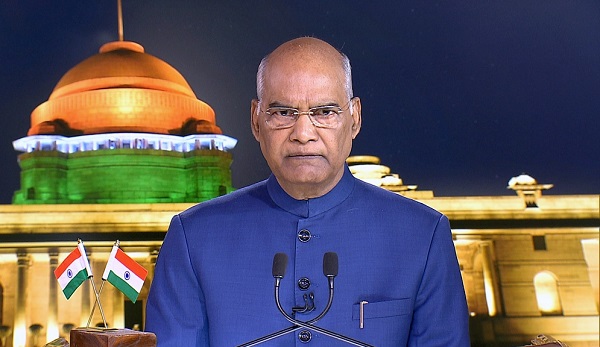
New Delhi, President Ram Nath Kovind on Wednesday expressed confidence that the government’s moves on Kashmir would be of “immense benefit” to the people of J&K and Ladakh and enable them to access the same rights and privileges as the rest of the country.
In his Independence Day eve address, that comes days after Prime Minister Narendra Modi’s address to the nation on Kashmir, President Kovind said: “I am confident that the recent changes made in Jammu-Kashmir and Ladakh would be of immense benefit to those regions. They will enable the people to access and enjoy the same rights, same privileges and same facilities as their fellow citizens in the rest of the country.”
On August 5, the Government of India revoked the special status for Kashmir and divided the state into two Union territories – J&K and Ladakh — for better governance.
Referring to the Lok Sabha elections, he said the 17th general election was the largest democratic exercise in human history. “For this I must congratulate our voters. They turned up at polling stations in large numbers and with much enthusiasm.”
He expressed happiness that the recently concluded session of Parliament saw lengthy and productive sittings of both the Lok Sabha and the Rajya Sabha. “Many important Bills were passed, in a spirit of cross-party cooperation and constructive debate. I am confident this is only an indicator of what the coming five years have in store. I also urge that this culture percolates to all our legislative assemblies.”
Commenting on governance, he said the state and the government have an important role to play as facilitator and an enabler. “As such, it is critical for our key institutions and the policy makers to study and appreciate the message being sent by citizens and to be responsive to the thoughts and wishes of our people.”
“Indians can be very different in their tastes and habits, but Indians share the same dreams. Before 1947, the dreams were for a free India. Today, the dreams are for accelerated development; for effective and transparent governance; and yet for a smaller footprint of government in our everyday lives.”









